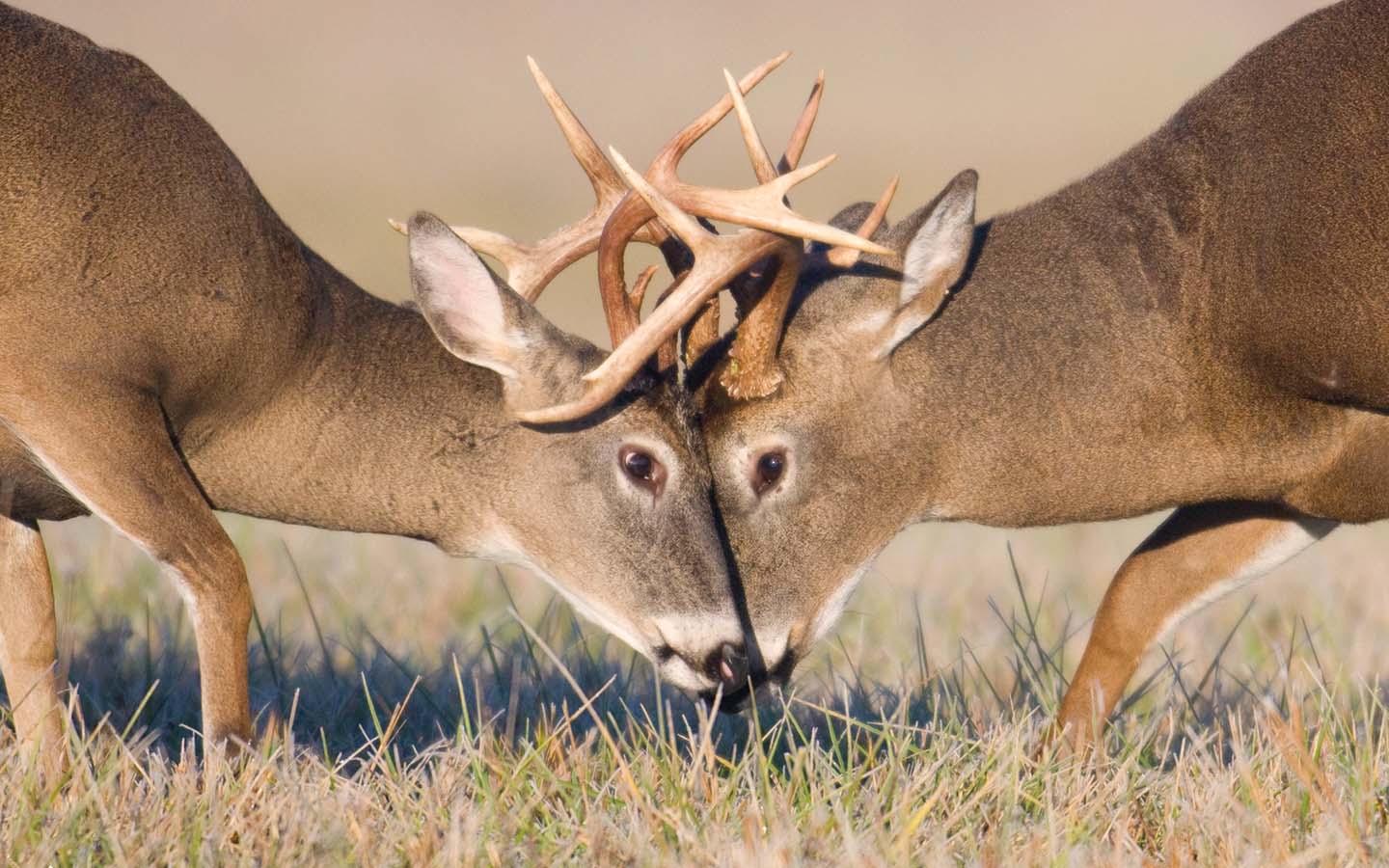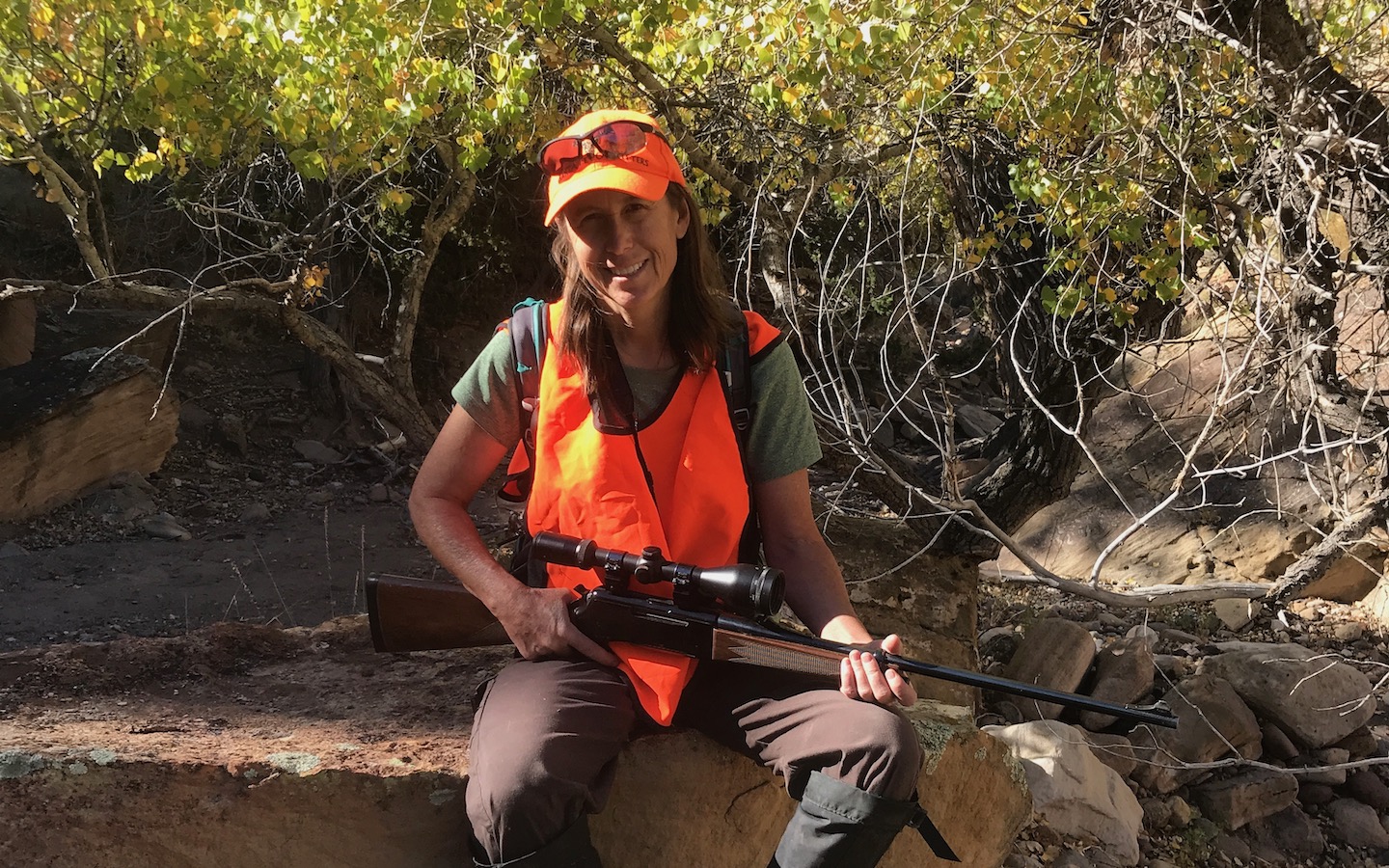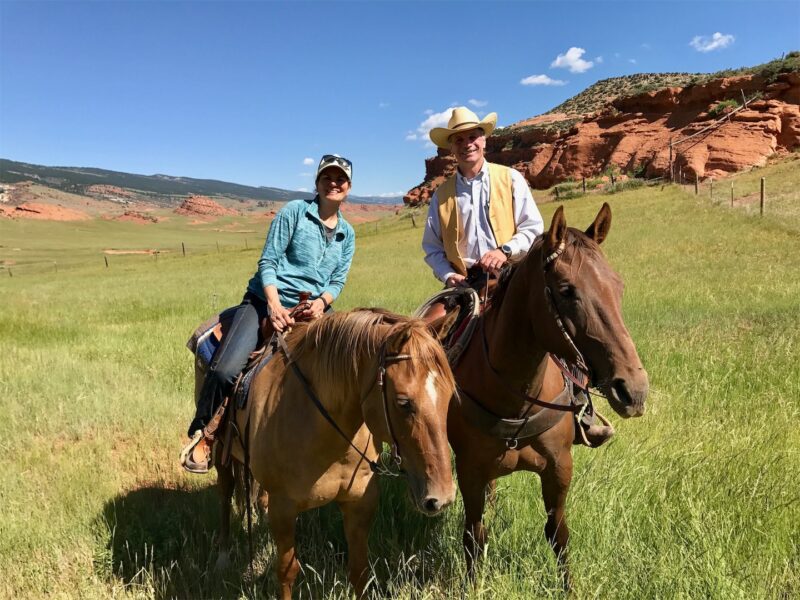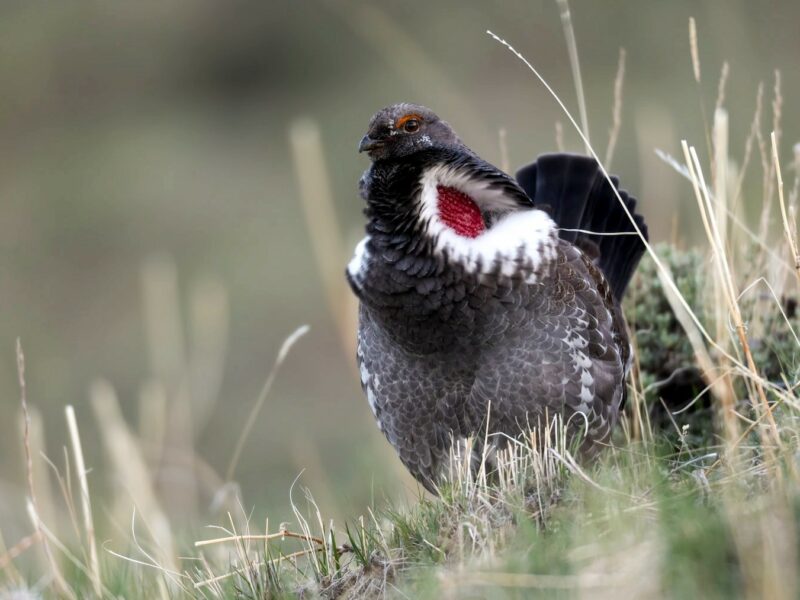Landowners and sportsmen: Allies or adversaries?
It was just around 8:30 a.m. on a clear morning in mid-September in the southern Colorado Rockies. Turning aspen fluttered lightly in the soft breeze as Dennis, a neighboring ranch manager, and I took a breather atop a short cliff we had just scaled. Further down the valley below, our two-person professional hunt security team was making its way up toward us on horseback. They would be able to go no farther than the cliff we had just scaled. It was impassable to horses or vehicles. Further below still, several miles down valley, ranch staff waited near the base radio at headquarters where any transmission from our end would have the best chance of being heard. And thirty miles farther away yet, a pilot sat in a chartered helicopter at a local airport, waiting for instructions.
We had just cracked open a thermos for a cup of coffee when a shot rang out far above us, along the top of the Continental Divide. Two more shots rang out soon after, then a pause, and finally a fourth shot. It was muzzleloading season but these carried the sharp reports of a rifle. They echoed off the canyon behind us, helping us identify the approximate location within that vast mountainous skyline from which they had been fired. We took off in that direction, long-legged Dennis setting a heart-pounding pace up the 2500-foot elevation climb up to timberline. The tip we had received from an anonymous hunter, disgusted by the bragging he had heard for years about this annual poaching expedition, was about to pay off.
Miraculously, in that enormous country, we found our poachers and caught them literally red-handed. Four men, ten horses, two dead elk and one dead mule deer. Equally miraculously, the single game warden on shift for two sprawling counties picked up the call from ranch headquarters and agreed after some amount of pleading to get on the helicopter and fly to the scene.
Many landowners and managers are themselves dedicated sportsmen and sportswomen. In fact, it’s why many go to the expense of acquiring and maintaining ranches.
Lesli Allison
Hidden in the brush nearby, we watched as the bust unfolded like a scene in a play. It began with the quick thump, thump of the approaching helicopter, faint at first in the distance, then suddenly loud as the aircraft erupted into sight from behind a ridge. The poachers panicked and pulled rifles out of scabbards, stashing them in nearby bushes. Amidst the chaotic noise and rotor wash, horses reared and bolted. Two of the men, each looking backward as they ran, collided and knocked each other down. It was a scene that would replay in our minds and conversations for years to come, and a scene we had the opportunity to describe in detail to the judge when the case finally made its way into court.
Yet despite poaching three animals, including a 6×6 trophy bull elk, along with multiple additional violations, the men paid a paltry penalty, either in the way of points or fines. Too often, this is the case, as hunting violations rank low on the priority list of heavy caseloads when it comes to prosecution. This is frustrating for landowners, wildlife agency officials and law-abiding sportsmen alike.
That’s exactly what prompted one Utah ranch to take a different approach. During a confrontation between ranch hands and a poacher who had just taken a trophy animal illegally on the property, the perpetrator cracked a beer along with a smile at the joke of the $40 penalty, which is all he thought he would have to pay. The ranch, however, turned the situation around, prosecuting a civil case and securing a penalty equivalent to the far more substantial fee law-abiding hunters had paid for the legal right to hunt on the property. As word spread about that conviction, the number of trespassing and poaching incidents on the ranch dropped dramatically.
At the end of the day, landowners and sportsmen have far more in common than not, starting with an appreciation for wildlife and wild places.
Lesli Allison
If you put a bunch of landowners and managers in a room together and ask them about hunting season, you’ll hear slews of stories about poaching and trespassing encounters. People have been assaulted by vehicle and at gunpoint on their own ranches, had their fences cut, working cattle dogs shot, ranch signs used for target practice. It’s a regular occurrence to find elk left to waste in a field with just the horns or heads cut off. And you don’t have to rely on anecdotal evidence, either.
Given the number of incidents, the fact that guns and often alcohol are involved, and the very limited availability of law enforcement, it is perhaps surprising that there aren’t more tragic outcomes from these encounters.

Together, landowners and sportsmen are footing the majority of the bill for conserving habitat and sustaining wildlife. So why are we going head to head so often?
Yet at the end of the day, landowners and sportsmen have far more in common than not, starting with an appreciation for wildlife and wild places. Many landowners and managers are themselves dedicated sportsmen and sportswomen. In fact, it’s why many go to the expense of acquiring and maintaining ranches. Personally speaking, hunting is deeply important and rewarding for me and my family and we hunt on both public and private lands.
Landowners and sportsmen also have a mutual interest in combating poaching, promoting ethical hunting, keeping lands healthy and intact, and encouraging the next generation of sportsmen and outdoorsmen. Many ranches rely on hunting for both income and wildlife management. In turn, private lands support the majority of both wildlife and hunting in the United States. Together, landowners and sportsmen are footing the majority of the bill for conserving habitat and sustaining wildlife.
Lately, however, tensions between sportsmen and landowners are on the rise. The articles in this issue will explore the reasons why, and ways in which we might reverse this for the benefit of all concerned, including especially the wildlife.





